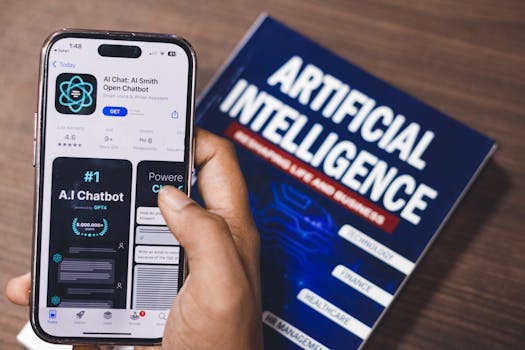
Emerging Trends in Artificial Intelligence and Machine Learning: What to Watch in 2023
Takeaways:
- The rise of generative AI is transforming content creation.
- Ethical considerations in AI are becoming paramount.
- AI automation is enhancing operational efficiency across industries.
- AI and ML are increasingly integrated into healthcare, finance, and customer service.
As we venture deeper into 2023, the landscape of artificial intelligence (AI) and machine learning (ML) continues to evolve at an unprecedented pace. Businesses, researchers, and technologists are harnessing these powerful tools to drive innovation, improve efficiency, and create new opportunities. In this article, we will explore the emerging trends in AI and ML that are set to shape the future.
1. The Rise of Generative AI

In 2023, we are witnessing a surge in the use of generative AI in content creation. Businesses are leveraging these technologies to produce articles, marketing copy, and social media posts at scale. This trend is not only enhancing productivity but also enabling marketers to personalize content more effectively, catering to individual customer preferences.
Moreover, generative AI is making waves in the creative industries, from generating artwork to composing music. As these technologies continue to improve, we can expect to see even more innovative applications, reshaping how we think about creativity and authorship.
2. Ethical AI and Responsible ML

Many companies are implementing frameworks to ensure that their AI systems are fair and unbiased. This includes conducting thorough audits of algorithms and datasets to identify and mitigate potential biases. Additionally, there is a push for transparency, where companies are encouraged to disclose how their AI systems make decisions, fostering trust among users.
Furthermore, the conversation around AI ethics is expanding to include issues of data privacy and surveillance. As businesses collect more data to train their AI models, the need for robust privacy policies and practices is becoming critical. Organizations are investing in solutions that prioritize user consent and data protection, paving the way for a more ethical approach to AI.
3. AI Automation and Operational Efficiency

In sectors like manufacturing, AI-powered robots are taking on repetitive tasks, allowing human workers to focus on more complex and creative roles. This shift not only improves efficiency but also fosters employee satisfaction by eliminating mundane tasks.
Similarly, in customer service, AI chatbots are becoming more sophisticated, capable of handling a wider range of inquiries while providing instant support. This not only enhances customer satisfaction but also reduces operational costs for businesses.
The integration of AI in supply chain management is also noteworthy. Companies are using predictive analytics to optimize inventory levels, forecast demand, and enhance logistics, ultimately leading to more resilient supply chains.
4. AI in Healthcare and Finance

Moreover, AI is playing a crucial role in drug discovery and personalized medicine. By analyzing vast datasets, AI can help researchers identify potential drug candidates faster and tailor treatments to individual patients based on their genetic profiles.
In finance, AI-driven algorithms are revolutionizing how investment strategies are developed and executed. From algorithmic trading to risk assessment, AI is enabling financial institutions to make data-driven decisions with unprecedented speed and accuracy.
As we look ahead, the integration of AI in these sectors is expected to deepen, with innovations in telemedicine, fraud detection, and financial forecasting transforming how we approach health and finance.






